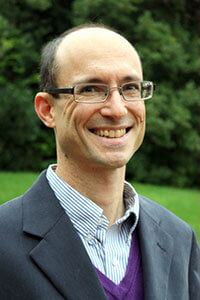In a recent article by Sam Hodges, “Fairness of GC2016 delegate allotment questioned,” some United Methodists from North America and Africa questioned the fairness of representation at General Conference.
A mandatory minimum of two delegates per annual conference unfairly advantages conferences in Europe and the Philippines, some say, leading to overrepresentation. For example, Joe Whittemore of the North Georgia Conference argues that this disparity undermines General Conference as a “representative democracy.”
Are Joe Whittemore and others really claiming that Filipinos and Europeans have had an outsized voice at General Conference? Data included in the monitoring report from General Conference 2012 contest this claim. Approximately 75 percent of the speakers during plenary were male, 78 percent were white, and over 80 percent were from the United States.
In a conference conducted in English on U.S. soil, all delegates from outside the United States are marginalized to a greater or lesser extent. What really counts is voice, not representation.

The Rev. Darryl W. Stephens
The voices of Europeans are not often heard at General Conference. For example, the Executive Committee of the Central Conference of Central and Southern Europe had petitioned General Conference to re-examine the Social Principles for a global church since 2000. Action on this request did not begin until 2012, when General Conference acknowledged the need to define a global Book of Discipline. It will be 2020 before the Social Principles are rewritten for the worldwide United Methodist Church.
Central conferences have also had difficulty being heard through the petitions process. In 1996, 2000, and 2004, General Conference approved only three petitions on social issues from central conferences — an average of one per quadrennium. In 2008 and 2012, this number grew to about six per quadrennium. Over the same time span, General Conference approved hundreds of petitions on social issues from the United States.
To claim, in the name of fairness and representative democracy that voices from North Georgia — or even Michigan — are being marginalized to the benefit of United Methodists from Europe and the Philippines is to fail to observe whose voices are actually heard at General Conference as well as to miss entirely the idea of General Conference being a form of Christian conferencing.
Absent Christian conferencing, the theological basis of The United Methodist Church’s democratic commitments erodes, exposing only power politics.
The Rev. Darryl W. Stephens is director of United Methodist studies at Lancaster Theological Seminary and a clergy member of the Texas Conference. Stephens is the author of Methodist Morals: Social Principles in the Public Church’s Witness (University of Tennessee Press, April 2016).
Like what you're reading? Support the ministry of UM News! Your support ensures the latest denominational news, dynamic stories and informative articles will continue to connect our global community. Make a tax-deductible donation at ResourceUMC.org/GiveUMCom.



